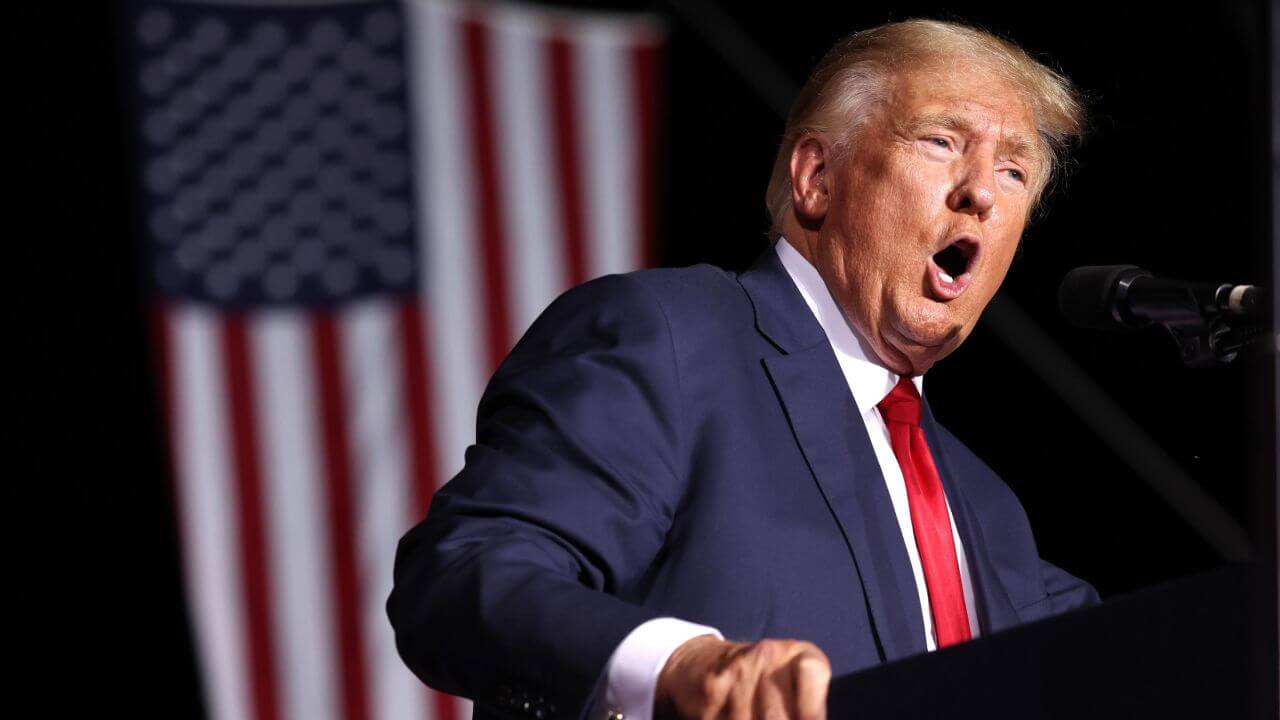The Supreme Court of The United States (SCOTUS) on Thursday dismissed former President Donald Trump’s appeal regarding the classified documents seized during the Federal Bureau of Investigation (FBI) raid at his Mar-a-Lago residence on August 8.
“The application to vacate the stay entered by the United States Court of Appeals for the Eleventh Circuit on September 21, 2022, presented to Justice [Clarence] Thomas and by him referred to the Court is denied,” it said in its ruling, without providing any explanation.
BREAKING: The Supreme Court has denied Trump's request to stay part of the 11th Circuit's decision in the MAL docs case. (Trump had wanted the special master privilege review to look at the documents marked as classified, as Judge Cannon originally ordered.) pic.twitter.com/clTPduHAGj
— Charlie Savage (@charlie_savage) October 13, 2022
Trump wanted SCOTUS to overturn the 11th US Circuit Court of Appeals’ ruling from last month and allow the Special Master to review 100 classified documents of the 11,000 already being assessed. In a 37-page filing last week, Trump’s lawyers argued, “The Eleventh Circuit lacked jurisdiction to review, much less stay, an interlocutory order of the District Court providing for the Special Master to review materials seized from President Trump’s home.”
“Any limit on the comprehensive and transparent review of materials seized in the extraordinary raid of a President’s home erodes public confidence in our system of justice,” they asserted, adding, “The Government has attempted to criminalize a document management dispute and now vehemently objects to a transparent process that provides much-needed oversight.”
The Department of Justice (DOJ) called on the apex court to reject the request, as the records were “extraordinarily sensitive,” with Solicitor General Elizabeth Prelogar stating that Trump has “no plausible claims” to the classified documents, and that Florida District Judge Aileen Cannon had “fundamentally erred” in appointing a special master.
“As this Court has emphasised, courts should be cautious before ‘insisting upon an examination’ of records whose disclosure would jeopardise national security ‘even by the judge alone, in chambers,’” the DOJ added, citing a previous case.
We don’t *know* that #SCOTUS was unanimous (shadow docket rulings don’t require justices to publicly note their vote).
— Steve Vladeck (@steve_vladeck) October 13, 2022
But the fact that no Justice *publicly* dissented (or wrote separately) is as big a loss for former President Trump as he could have received in this context. https://t.co/dQofDrgKld
Judge Cannon, a Trump appointee, had agreed to appoint a special master, New York-based District Court Judge Raymond Dearie, to review all the 11,000 seized documents to address both attorney-client privilege and executive privilege last month. She also blocked the DOJ from conducting any further investigation until the review was complete, which the Justice Department immediately appealed at the federal appeals court.
The DOJ pointed out to SCOTUS that the appeals court discovered that Judge Cannon had “abused her discretion” and inflicted “a serious and unwarranted intrusion on the Executive Branch’s authority to control the use and distribution of extraordinarily sensitive government records.”
DOJ's response to Trump's effort to get SCOTUS to intervene for him is thoughtful & compelling. As DOJ points out, it sought modest & thoroughly warranted relief from the 11th Circuit to avoid unprecedented interference by a district court judge in a criminal investigation.
— Joyce Alene (@JoyceWhiteVance) October 12, 2022
In its ruling, the three-judge panel at the appellate said that Trump had failed to provide evidence that the records were declassified, adding that the former president “has not even attempted to show that he has a need to know the information contained in the classified documents.” In addition, they stated that “The United States has sufficiently explained how and why it’s national security review is inextricably intertwined with its criminal investigation.” The panel also noted that it would be “difficult if not impossible” for the DOJ to continue its criminal investigation if it is blocked from accessing the seized documents.
This is not the first time that SCOTUS has declined Trump’s request. Following the 2020 presidential election, the justices refused to overturn the electoral results. Only Justice Thomas, appointed by Trump, expressed an interest in opening a case related to voting rules in Pennsylvania in 2020.
SCOTUS just rejected a request from Donald Trump to intervene in the document review process as part of the criminal investigation into how he handled classified information. Good. No one should get to meddle in the pursuit of justice, least of all a former president.
— Andrew Warren (@AndrewWarrenFL) October 13, 2022
Furthermore, when Trump was still the President in 2020, the high court ruled that Trump had no right to block a New York prosecutor’s request for his financial records. Additionally, in January this year, the Supreme Court allowed the January 6 Special House Committee to release the White House records held by the National Archives related to the Capitol Hill insurrection.

